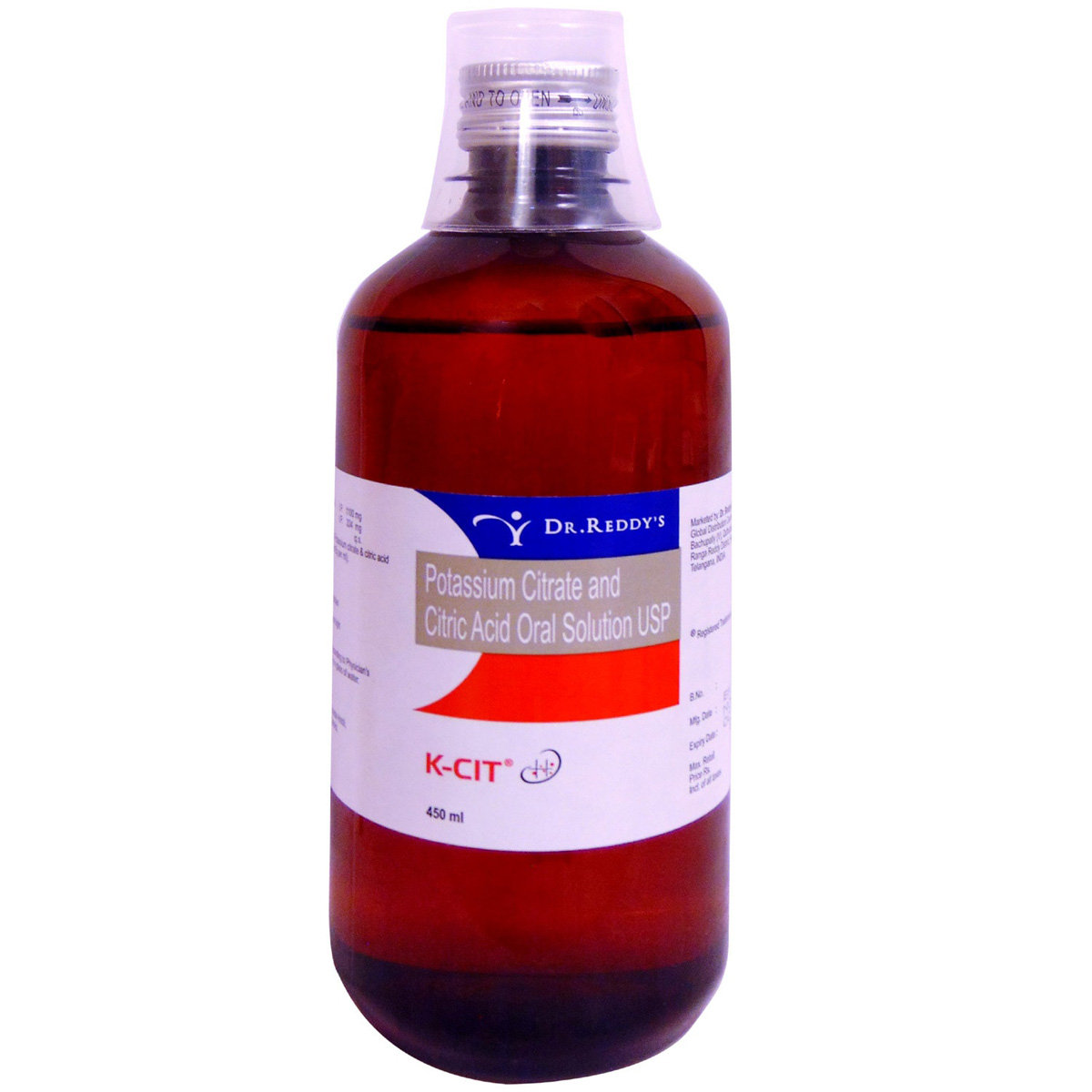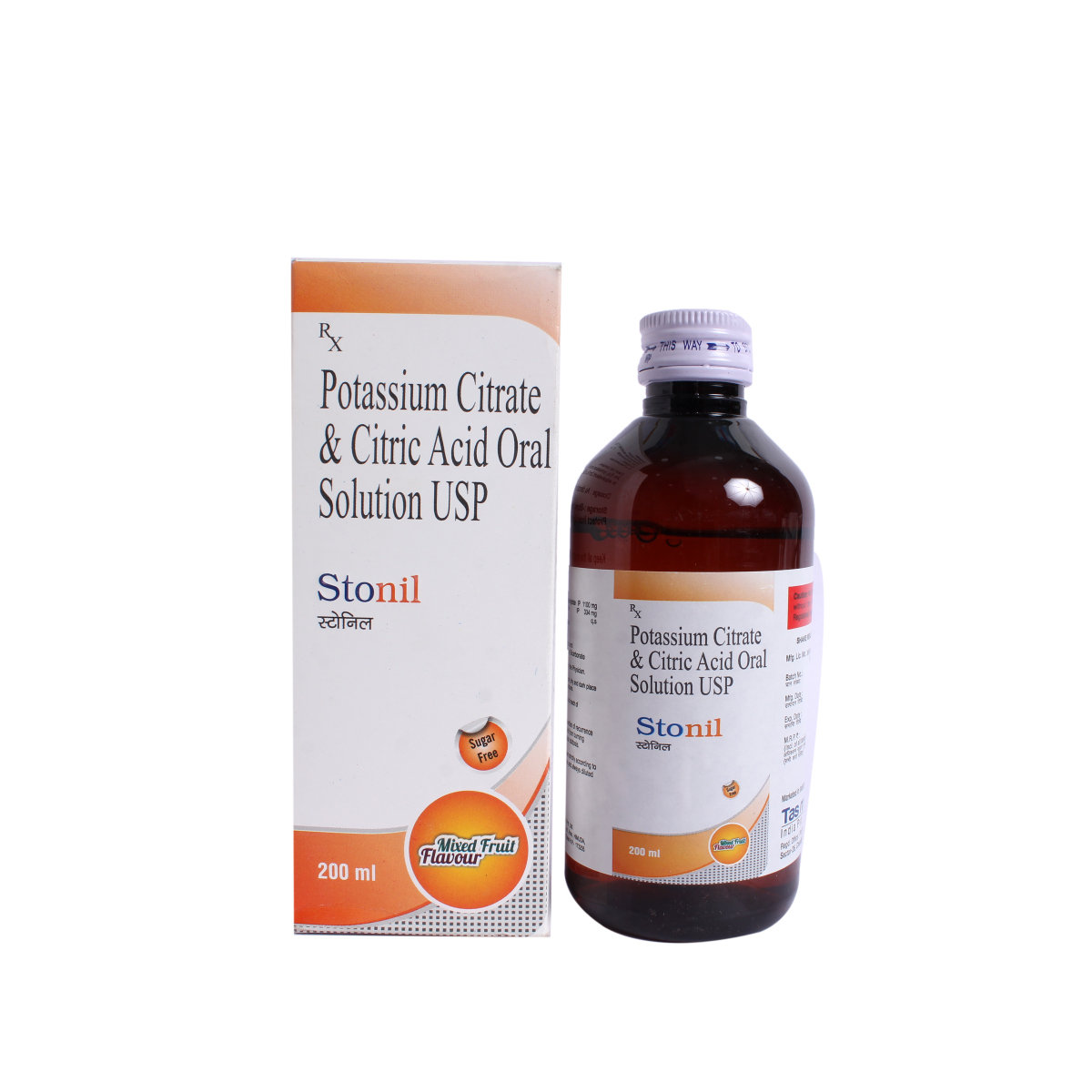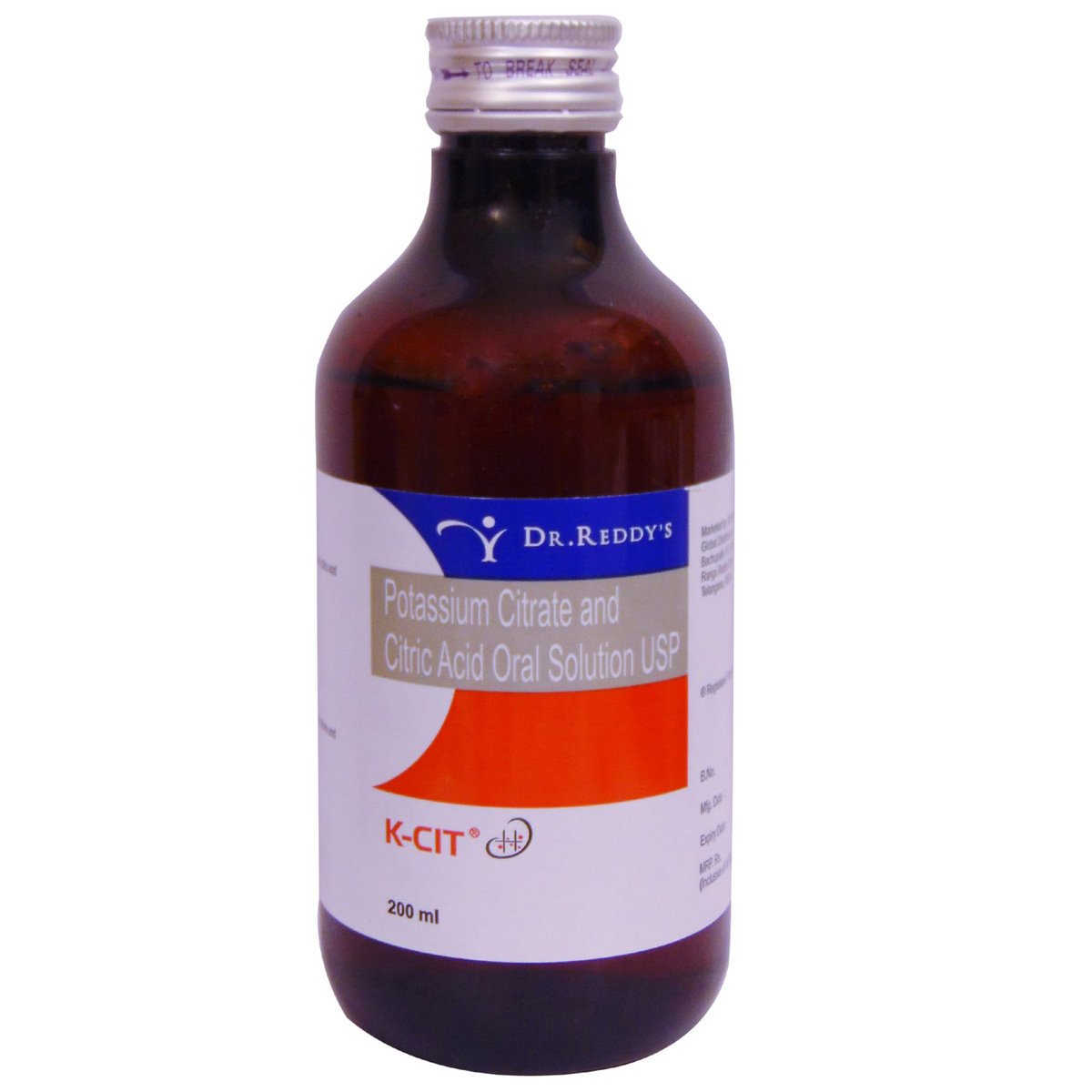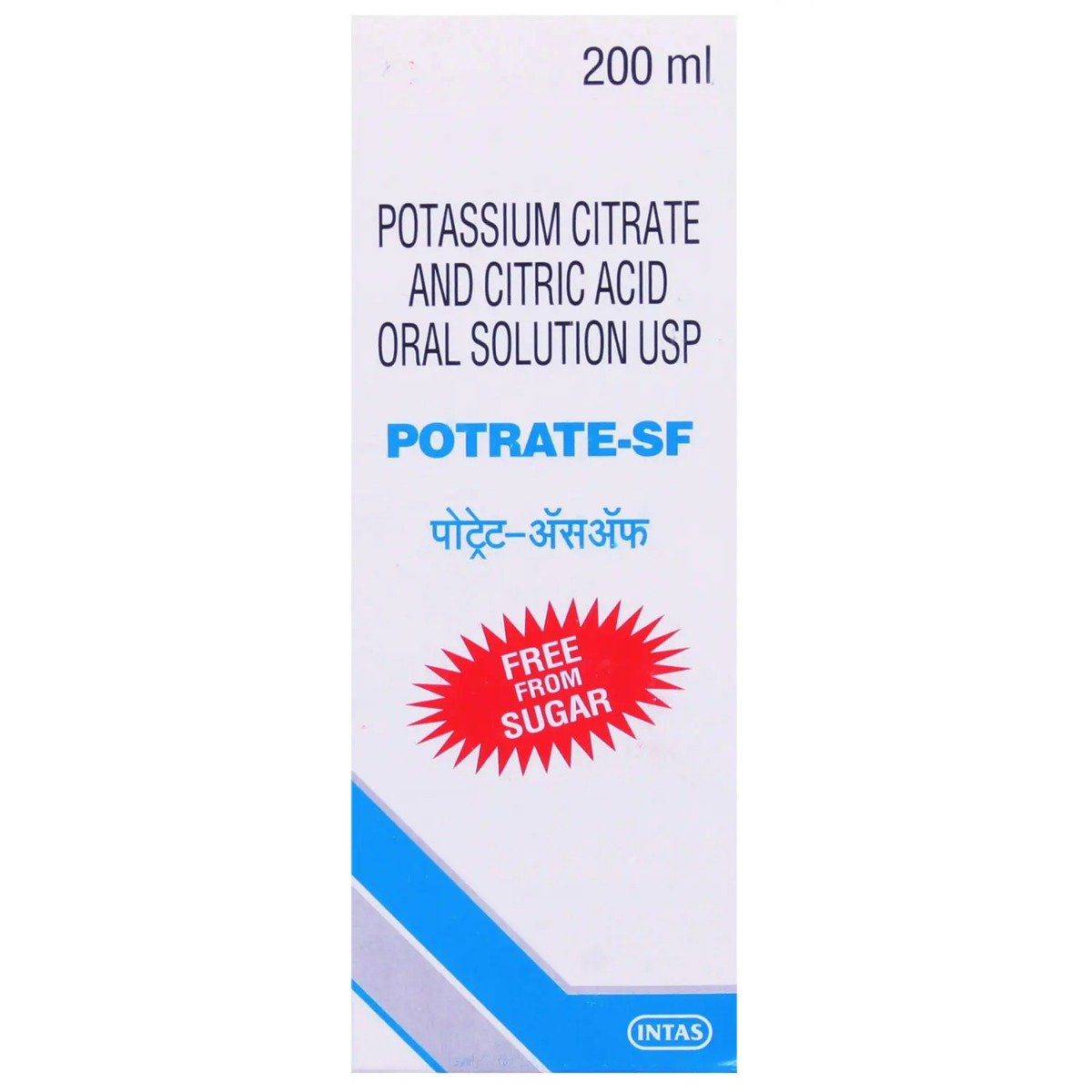Proliser Solution 150 ml


MRP ₹161
(Inclusive of all Taxes)
₹24.1 Cashback (15%)
About Proliser Solution
Proliser Solution belongs to the class of medications called ‘alkalinizing agents’ used to prevent gout and kidney stones and treat metabolic acidosis in patients with kidney diseases. Gout is a type of arthritis in which uric acid crystals are deposited in the joints leading to severe pain, redness, and swelling. A kidney stone is a condition in which hard deposits are accumulated in the kidney forming stones. Metabolic acidosis is a condition in which excess acid is accumulated in the body due to kidney failure.
Proliser Solution combines two medicines: Citric acid and Potassium citrate. Citric acid prevents the formation of deposits by binding with the salts and also breaks down the small deposits that are beginning to form. Potassium citrate is alkaline in nature and works by neutralizing the acids in the blood and urine, thereby preventing the accumulation of salts in the body.
Proliser Solution is available in the form of oral liquid. You should take this medicine as prescribed by your doctor. Proliser Solution may cause side effects such as diarrhoea, stomach upset, nausea, and vomiting. These side effects are mild and temporary. However, inform your doctor if any of these side effects persist or get worsen.
To treat your condition, continue taking Proliser Solution for as long as your doctor has prescribed it. Do not take Proliser Solution if you are allergic to Citric acid, potassium citrate, or other ingredients. Inform your doctor if you are pregnant or breastfeeding before taking the Proliser Solution . It should not be used in patients with severe kidney failure, severe heart damage, severe dehydration, heat cramps, Addison’s disease (an adrenal gland disorder), or hyperkalemia (high blood potassium levels). Proliser Solution should not be given to children unless prescribed by a doctor. Avoid alcohol consumption while taking Proliser Solution as it might increase certain side-effects. Keep your doctor informed about all the medicines you are taking and your health condition to rule out any unpleasant side effects.
Country of origin
Manufacturer/Marketer address
Online payment accepted

secured payment

india's most trusted pharmacy

genuine products
Composition :
Manufacturer/Marketer :
Consume Type :
Expires on or after :
Return Policy :
Available Offers
Provide Delivery Location
About Proliser Solution
Proliser Solution belongs to the class of medications called ‘alkalinizing agents’ used to prevent gout and kidney stones and treat metabolic acidosis in patients with kidney diseases. Gout is a type of arthritis in which uric acid crystals are deposited in the joints leading to severe pain, redness, and swelling. A kidney stone is a condition in which hard deposits are accumulated in the kidney forming stones. Metabolic acidosis is a condition in which excess acid is accumulated in the body due to kidney failure.
Proliser Solution combines two medicines: Citric acid and Potassium citrate. Citric acid prevents the formation of deposits by binding with the salts and also breaks down the small deposits that are beginning to form. Potassium citrate is alkaline in nature and works by neutralizing the acids in the blood and urine, thereby preventing the accumulation of salts in the body.
Proliser Solution is available in the form of oral liquid. You should take this medicine as prescribed by your doctor. Proliser Solution may cause side effects such as diarrhoea, stomach upset, nausea, and vomiting. These side effects are mild and temporary. However, inform your doctor if any of these side effects persist or get worsen.
To treat your condition, continue taking Proliser Solution for as long as your doctor has prescribed it. Do not take Proliser Solution if you are allergic to Citric acid, potassium citrate, or other ingredients. Inform your doctor if you are pregnant or breastfeeding before taking the Proliser Solution . It should not be used in patients with severe kidney failure, severe heart damage, severe dehydration, heat cramps, Addison’s disease (an adrenal gland disorder), or hyperkalemia (high blood potassium levels). Proliser Solution should not be given to children unless prescribed by a doctor. Avoid alcohol consumption while taking Proliser Solution as it might increase certain side-effects. Keep your doctor informed about all the medicines you are taking and your health condition to rule out any unpleasant side effects.
Uses of Proliser Solution
Key Benefits
Proliser Solution is a combination of two medicines: Citric acid and Potassium citrate, primarily used to prevent gout and kidney stones and treat metabolic acidosis in patients with kidney diseases. Citric acid prevents the formation of deposits by binding with the salts and also breaks down the small deposits that are beginning to form. Potassium citrate is alkaline in nature and works by neutralizing the acids in the blood and urine. Proliser Solution effectively reduces the crystallization of stone-forming salts such as calcium oxalate (in kidney stones) and uric acid (in gout).
Directions for Use
Storage
Side Effects of Proliser Solution
- Nausea
- Vomiting
- Diahrrea
- Stomach upset
- Black, tarry, or bloody stools
Drug Warnings
Proliser Solution should be used with caution in patients with fluid loss (dehydration), heat cramps, high potassium levels, a certain problem that causes periods of muscle weakness (adynamia episodica hereditaria), kidney disease, heart disease, unable to pass urine, or untreated Addison's disease, toxaemia of pregnancy (high blood pressure during pregnancy), oedema (swelling), and chronic diarrhoea. Do not take antacids without consulting your doctor while using Proliser Solution , as it may lead to electrolyte imbalances. Proliser Solution should not be used in pregnancy or breastfeeding unless the doctor has told you to do so. Do not take food containing potassium supplements or other products that contain potassium, as they may worsen your condition. Stop using Proliser Solution and consult a doctor immediately if you notice muscle twitching, swelling, weakness, mood changes, weight gain, increased heart rate, black or tarry stools, severe diarrhoea, or convulsions (fits) while using Proliser Solution .
Drug Interactions
Drug-drug interactions: Proliser Solution may interact with an antacid containing aluminium (aluminium hydroxide, aluminium carbonate), pain killer (aspirin), antipsychotic medication (lithium), a medication used to treat urinary tract infection (methenamine, nitrofurantoin), and a medication used to treat arrhythmia (quinidine), potassium-sparing diuretics (triamterene, spironolactone, amiloride), antihistamines (diphenhydramine, brompheniramine), antihypertensive (enalapril, captopril, fosinopril), antidepressants (amitriptyline, amoxapine, desipramine, doxepin, imipramine), medicines used to treat overactive bladder (solifenacin, darifenacin).
Drug-food interactions: Avoid taking potassium supplements, salt substitutes, or low-salt dietary products while taking Proliser Solution .
Drug-disease interactions: Proliser Solution should be avoided in patients with electrolyte imbalances, inflammatory bowel disease, intestinal blockage, severe dehydration, urination problems, heart failure, and Addison’s disease (adrenal gland disorder).
Drug-Drug Interactions Checker List
- ALUMINUM CARBONATE
- ALUMINUM HYDROXIDE
- ASPIRIN
- LITHIUM
- METHENAMINE
- QUINIDINE
- TRIAMTERENE
- SPIRONOLACTONE
- AMILORIDE
- DIPHENHYDRAMINE
- BROMPHENIRAMINE
- ENALAPRIL
- CAPTOPRIL
- FOSINOPRIL
- AMITRIPTYLINE
- AMOXAPINE
- DOXEPIN
- IMIPRAMINE
- SOLIFENACIN
- DARIFENACIN
Habit Forming
Diet & Lifestyle Advise
- Drink plenty of fluids.
- Limit consumption of spinach, wheat bran, nuts, beets, and dairy products.
- Avoid high salt intake and foods containing baking soda.
- Do not take vitamin C and calcium supplements without your doctor’s advice.
- Physical activity helps strengthen muscles and relieves joint stiffness. Gentle activities like 20-30minutes of walking or swimming would be helpful.
- Performing yoga may also help in improving joint flexibility and pain management.
- Maintain a healthy weight by performing regular low-strain exercises and eating healthy food.
- Get adequate sleep, as resting the muscles can help reduce inflammation and swelling.
- Follow heat or cold therapy, and apply a cold or hot compress on the joints for 15-20minutes regularly.
- De-stress yourself by meditating, reading books, taking a warm bubble bath or listening to soothing music.
- Acupuncture, massage and physical therapy may also be helpful.
- Eat food rich in antioxidants such as berries, spinach, kidney beans, dark chocolate, etc.
- Foods containing flavonoids help in reducing inflammation. These include soy, berries, broccoli, grapes and green tea.
- Avoid smoking and alcohol consumption.
Special Advise
- Following a specific diet plan created by your nutritionist to control your health condition is essential.
- Your doctor may advise you to take blood and urine tests while using Proliser Solution to examine your health condition and ensure that this medicine treats your condition.
Disease/Condition Glossary
Gout: Gout is a type of arthritis in which patients experience severe pain, redness, and swelling in joints. The most common affected area is the joint at the base of the big toe. Patients with gout may often experience acute attacks that result in sudden and severe pain. It occurs due to a condition called hyperuricemia (high uric acid levels in the body). The excess uric acid deposit and crystallize in the joints leading to pain and inflammation.
Kidney stones: It is a condition in which hard deposits occur in the kidney leading to stones. A kidney stone comprises mainly four types of calcium oxalate, uric acid, struvite, and cystine. It is due to the increased level of uric acid in the body. As a result, uric acid crystals start depositing in the kidney, known as renal calculi/nephrolithiasis/urolithiasis.
Metabolic acidosis: Metabolic acidosis is a condition in which excess acid is accumulated in the body due to the kidney's inability to remove excess acid from the body. It can be of various types, such as lactic acidosis (build-up of lactic acid), diabetic acidosis (build-up of ketone bodies), and hyperchloremic acidosis (build-up of sodium bicarbonate). It is mostly seen in patients with kidney impairment.
FAQs
Disclaimer
Product Substitutes
Alcohol
Safe if prescribed
Alcohol consumption may worsen your health condition.
Pregnancy
Consult your doctor
Proliser Solution is a pregnancy category C drug. It should not be taken until prescribed. Your doctor will weigh the benefits and potential risks before prescribing them. Please consult your doctor.
Breast Feeding
Consult your doctor
There is limited data on how Proliser Solution affects breastfeeding. Please consult your doctor before taking Proliser Solution . Your doctor will weigh the benefits and potential risks before prescribing them.
Driving
Safe if prescribed
Proliser Solution may not affect your ability to drive.
Liver
Consult your doctor
Proliser Solution can be used in patients with liver diseases if prescribed.
Kidney
Consult your doctor
Proliser Solution should be used with caution in patients with kidney diseases. Dose adjustments may be necessary.
Children
Safe if prescribed
The safety and effectiveness of Proliser Solution in children have not been established. Please consult your doctor before giving Proliser Solution to children.
Author Details
We provide you with authentic, trustworthy and relevant information
Reference
- https://www.accessdata.fda.gov/drugsatfda_docs/label/2010/019071s012lbl.pdf
- https://www.drugs.com/cdi/potassium-citrate-and-citric-acid-solution.html
- https://www.mayoclinic.org/drugs-supplements/potassium-citrate-oral-route/side-effects/drg-20074773?p=1#:~:text=Potassium%20citrate%20is%20used%20to,more%20alkaline%20(less%20acid).
Uses of Proliser Solution
Key Benefits
Proliser Solution is a combination of two medicines: Citric acid and Potassium citrate, primarily used to prevent gout and kidney stones and treat metabolic acidosis in patients with kidney diseases. Citric acid prevents the formation of deposits by binding with the salts and also breaks down the small deposits that are beginning to form. Potassium citrate is alkaline in nature and works by neutralizing the acids in the blood and urine. Proliser Solution effectively reduces the crystallization of stone-forming salts such as calcium oxalate (in kidney stones) and uric acid (in gout).
Directions for Use
Storage
Drug Warnings
Proliser Solution should be used with caution in patients with fluid loss (dehydration), heat cramps, high potassium levels, a certain problem that causes periods of muscle weakness (adynamia episodica hereditaria), kidney disease, heart disease, unable to pass urine, or untreated Addison's disease, toxaemia of pregnancy (high blood pressure during pregnancy), oedema (swelling), and chronic diarrhoea. Do not take antacids without consulting your doctor while using Proliser Solution , as it may lead to electrolyte imbalances. Proliser Solution should not be used in pregnancy or breastfeeding unless the doctor has told you to do so. Do not take food containing potassium supplements or other products that contain potassium, as they may worsen your condition. Stop using Proliser Solution and consult a doctor immediately if you notice muscle twitching, swelling, weakness, mood changes, weight gain, increased heart rate, black or tarry stools, severe diarrhoea, or convulsions (fits) while using Proliser Solution .
Therapeutic Class
Drug-Drug Interactions Checker List
- ALUMINUM CARBONATE
- ALUMINUM HYDROXIDE
- ASPIRIN
- LITHIUM
- METHENAMINE
- QUINIDINE
- TRIAMTERENE
- SPIRONOLACTONE
- AMILORIDE
- DIPHENHYDRAMINE
- BROMPHENIRAMINE
- ENALAPRIL
- CAPTOPRIL
- FOSINOPRIL
- AMITRIPTYLINE
- AMOXAPINE
- DOXEPIN
- IMIPRAMINE
- SOLIFENACIN
- DARIFENACIN
Diet & Lifestyle Advise
- Drink plenty of fluids.
- Limit consumption of spinach, wheat bran, nuts, beets, and dairy products.
- Avoid high salt intake and foods containing baking soda.
- Do not take vitamin C and calcium supplements without your doctor’s advice.
- Physical activity helps strengthen muscles and relieves joint stiffness. Gentle activities like 20-30minutes of walking or swimming would be helpful.
- Performing yoga may also help in improving joint flexibility and pain management.
- Maintain a healthy weight by performing regular low-strain exercises and eating healthy food.
- Get adequate sleep, as resting the muscles can help reduce inflammation and swelling.
- Follow heat or cold therapy, and apply a cold or hot compress on the joints for 15-20minutes regularly.
- De-stress yourself by meditating, reading books, taking a warm bubble bath or listening to soothing music.
- Acupuncture, massage and physical therapy may also be helpful.
- Eat food rich in antioxidants such as berries, spinach, kidney beans, dark chocolate, etc.
- Foods containing flavonoids help in reducing inflammation. These include soy, berries, broccoli, grapes and green tea.
- Avoid smoking and alcohol consumption.
Habit Forming
Side Effects of Proliser Solution
- Nausea
- Vomiting
- Diahrrea
- Stomach upset
- Black, tarry, or bloody stools
Special Advise
- Following a specific diet plan created by your nutritionist to control your health condition is essential.
- Your doctor may advise you to take blood and urine tests while using Proliser Solution to examine your health condition and ensure that this medicine treats your condition.
Disease/Condition Glossary
Gout: Gout is a type of arthritis in which patients experience severe pain, redness, and swelling in joints. The most common affected area is the joint at the base of the big toe. Patients with gout may often experience acute attacks that result in sudden and severe pain. It occurs due to a condition called hyperuricemia (high uric acid levels in the body). The excess uric acid deposit and crystallize in the joints leading to pain and inflammation.
Kidney stones: It is a condition in which hard deposits occur in the kidney leading to stones. A kidney stone comprises mainly four types of calcium oxalate, uric acid, struvite, and cystine. It is due to the increased level of uric acid in the body. As a result, uric acid crystals start depositing in the kidney, known as renal calculi/nephrolithiasis/urolithiasis.
Metabolic acidosis: Metabolic acidosis is a condition in which excess acid is accumulated in the body due to the kidney's inability to remove excess acid from the body. It can be of various types, such as lactic acidosis (build-up of lactic acid), diabetic acidosis (build-up of ketone bodies), and hyperchloremic acidosis (build-up of sodium bicarbonate). It is mostly seen in patients with kidney impairment.
All Substitutes & Brand Comparisons
RX
K-Cit Oral Solution 450 ml
Dr Reddy's Laboratories Ltd
₹259.5
(₹0.52/ 1ml)
46% CHEAPERRX
Stonil Oral Solution 200 ml
Tas Med India Pvt Ltd
₹120.5
(₹0.54/ 1ml)
44% CHEAPERRX
K-Cit Oral Solution 200 ml
Dr Reddy's Laboratories Ltd
₹176.5
(₹0.79/ 1ml)
18% CHEAPER

Have a query?
Buy best Genito Urinary products by
Cipla Ltd
Sun Pharmaceutical Industries Ltd
Intas Pharmaceuticals Ltd
Ipca Laboratories Ltd
Leeford Healthcare Ltd
Dr Reddy's Laboratories Ltd
Lupin Ltd
Alkem Laboratories Ltd
Msn Laboratories Pvt Ltd
Zydus Healthcare Ltd
Demorbus India Pvt Ltd
Mankind Pharma Pvt Ltd
Overseas Health Care Pvt Ltd
RPG Life Sciences Ltd
La Renon Healthcare Pvt Ltd
Alembic Pharmaceuticals Ltd
Corona Remedies Pvt Ltd
Macleods Pharmaceuticals Ltd
Aristo Pharmaceuticals Pvt Ltd
Fourrts India Laboratories Pvt Ltd
Tas Med India Pvt Ltd
Micro Labs Ltd
Samarth Life Sciences Pvt Ltd
Zydus Cadila
Emcure Pharmaceuticals Ltd
Hetero Drugs Ltd
Ignyx Pharmaceuticals
Renspur Healthcare Pvt Ltd
Steris Healthcare
Alniche Life Sciences Pvt Ltd
Septalyst Lifesciences Pvt Ltd
Ajanta Pharma Ltd
Elder Pharmaceuticals Ltd
Merynova Life Sciences India Pvt Ltd
Tppl Pharmaceuticals Pvt Ltd
Walter Bushnell
Aar Ess Remedies Pvt Ltd
Knoll Healthcare Pvt Ltd
Lividus Pharmaceuticals Pvt Ltd
Meditrex Pharma
Medrhans Pharmaceuticals Pvt Ltd
Neuten HealthCare
Redmed Medical Services
Talohsty Medmark Pvt Ltd
Zycris Healthcare
East West Pharma India Pvt Ltd
Globus Remedies Ltd
Golden Square Lab Pvt Ltd
Hetero Healthcare Pvt Ltd
Modi Mundipharma Pvt Ltd
Nephurocare Pharma Pvt Ltd
Pfizer Ltd
TTK Healthcare Ltd
Votary Laboratories (India) Ltd
Albus Healthcare Pvt Ltd
Delvin Formulations (P) Ltd
Indoco Remedies Ltd
Intra Life Pvt Ltd
Megma Healthcare Pvt Ltd
Morepen Laboratories Ltd
Qren Life Sciences Pvt Ltd
Steadfast MediShield Pvt Ltd
Unipark Biotech Pvt Ltd
Akumentis Healthcare Ltd
Biokindle Lifesciences Pvt Ltd
Calren Care Lifesciences Pvt Ltd
Chemo Biological Ltd
Chemo Healthcare Pvt Ltd
Euniche Life Sciences
Himeros Pharmaceuticals Pvt Ltd
Hospimax Healthcare Pvt Ltd
Kiosence Health Care Pvt Ltd
Lia Life Sciences Pvt Ltd
Panacea Biotec Ltd
Primus Remedies Pvt Ltd
Rencord Life Sciences Pvt Ltd
Shilpa Medicare Ltd
Stadmed Pvt Ltd
Abbott India Ltd
Ameya Pharmaceuticals & Chemicals Pvt Ltd
Ardent Life Sciences Pvt Ltd
Asterima Pharmaceuticals Pvt Ltd
Astrum Healthcare Pvt Ltd
Cadila Healthcare Ltd
De Renon
Fibovil Pharmaceuticals Pvt Ltd
Koye Pharmaceuticals Pvt Ltd
Linux Laboratories Pvt Ltd
MMC Healthcare Ltd
Neovae Biomedics Pvt Ltd
Olcare Laboratories Pvt Ltd
Oxygen Pharma Care Pvt Ltd
Prevego Healthcare & Research Pvt Ltd
Rene Lifescience
Sanzyme Pvt Ltd
Solis Ortus Remedies Pvt Ltd
Syndicate Life Sciences Pvt Ltd
Tycoon Pharmaceuticals Pvt Ltd
Vasu Organics Pvt Ltd
Walron Health Care Pvt Ltd



